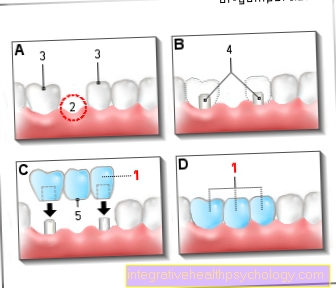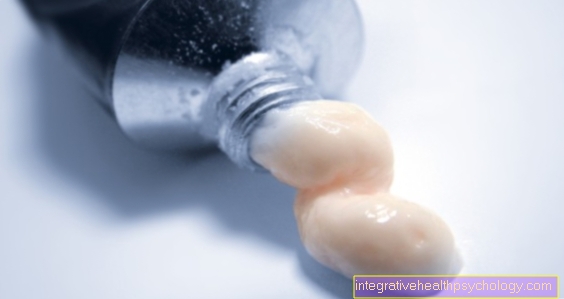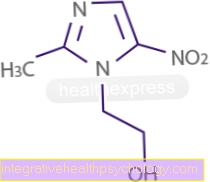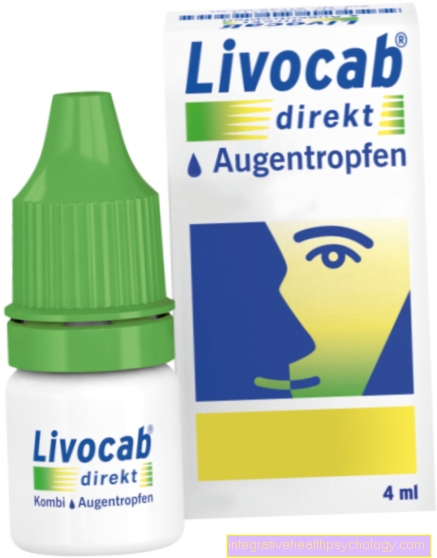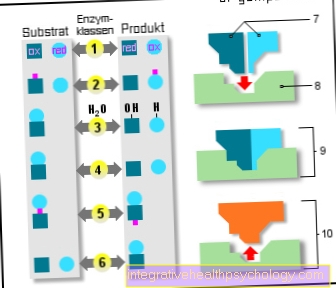Betaisodona® spray
Introduction - what is Betaisodona® powder spray?
Betaisodona® Spray is a so-called disinfectant or antiseptic. It can be applied to the skin and is used to kill a wide range of different pathogens.
Betaisodona® spray is often used to clean superficial wounds. The disinfectant effect is supposed to facilitate healing and prevent wound infection. Other areas of application are, for example, the disinfection of a skin area before a planned medical intervention or hand disinfection. When applied, Betaisodona® Spray has a brownish color.

Indications for Betaisodona® powder spray
Betaisodona® powder spray has several areas of application. The best known is antiseptic wound treatment. The Betaisodona® spray applied is intended to kill germs, thereby facilitating wound healing.
Another area of application is the disinfection of a section of skin before a medical intervention. The Betaisodona® spray applied is intended to prevent infection and facilitate healing after the procedure. Betaisodona® Spray is also suitable as a hand disinfectant due to its disinfecting effect.
Read more on the topic:
- Wound healing disorder
- First aid for wounds
Active ingredient, effect of Betaisodona®
The povidone iodine contained is primarily responsible for the germicidal effect of Betaisodona® Spray. It also gives the spray its typical red-brown color. Only the iodine is responsible for the actual effect. Povidone, on the other hand, binds iodine, making it easier to use and water-soluble. However, a small part of the iodine is unbound. It reacts with pathogen components and kills them. The part of the iodine bound by povidone serves as a kind of reservoir, which can be released over a longer period of time.
Povidone - iodine is very effective against a variety of germs. It not only kills bacteria, but also has an effect on other pathogens such as viruses, fungi or certain protozoa. Unlike most antibiotics, there is usually no risk of developing resistance with an antiseptic such as Betaisodona® Spray. In addition, the effect occurs immediately after use.
Read more on the topic: Iodine in the human body, betaisodona
side effect
Although Betaisodona® Spray is well tolerated, it is not completely free from undesirable effects. It can lead to hypersensitivity to a contained substance. This usually manifests itself in a reddening of the affected skin area. It can also cause itching, burning, swelling, small blisters or the like.
An allergic reaction to a substance contained therein can also occur. In the worst case, this can lead to severe symptoms such as shortness of breath, drop in blood pressure or dizziness. If such an incident has occurred in the past after using Betaisodona® Spray, you should therefore avoid its use.
Read more on the topic: Allergic reaction on the skin
The iodine contained in Betaisodona® spray can also be absorbed by the body, especially when used over a longer period of time. This can occur in patients who tend to have an overactive thyroid. This is usually expressed by a racing heart or an inner restlessness. However, this side effect is considered to be very rare.
Read more on the topic: Iodine allergy - you should be aware of this
interaction
There is a risk of interactions, especially when several disinfectants are used simultaneously on the same skin area. This is especially true for mercury-based disinfectants. Corrosive mercury iodide can form. However, mercury-based disinfectants are now rarely used.
When using Betaisodona® spray and lithium at the same time, there is a risk of Hypothyroidism, i.e. an underactive thyroid. Lithium is mainly used for certain depressive illnesses. There are databases on the Internet that list interactions in detail.
Effectiveness of the pill through Betaisodona® spray
Betaisodona® Spray is used on the surface. Only a small part of the active ingredient can normally pass into the body if used correctly. Betaisodona® Spray is not known to affect the way the pill works. The effectiveness of the Betaisodona® spray is also not changed by taking the pill.
Read more on the topic: Pill doesn't work
Contraindications - When should Betaisodona® powder spray not be given?
If you have a known allergy to one of the substances it contains, Betaisodona® Spray should not be used.
The use of Betaisodona® spray should also be avoided with many thyroid diseases. The thyroid can be sensitive to the iodine it contains.
The situation is similar with the so-called radio-iodine therapy. At least until such therapy has been completed, Betaisodona® Spray should not be used.
Another contraindication is Dermatitis Herpetiformis Duhring. This is a rare skin condition.
Dosage - How Often?
Betaisodona® Spray can normally be used several times a day. The area to be treated should be visibly covered by the powder it contains. Over time, the applied Betaisodona® spray will discolor. As a result, the spray also indicates a loss of effectiveness.
After decolorization, additional dosing is therefore necessary in order to maintain the desired effectiveness. In case of doubt and unless otherwise directed by a doctor, the package insert should be consulted.
How do I use Betaisodona® powder spray correctly?
Betaisodona® Spray should only be used superficially. Before use, it should be ensured that there are no contraindications for the use of Betaisodona® Spray. Coarse contamination of a wound should be cleaned by rinsing with clean water or even better with a so-called Ringer's solution. Larger contamination can also be removed using a sterile instrument such as tweezers.
If Betaisodona® spray is applied to a severely bleeding wound, its effectiveness may be impaired.
Depending on the model, you may need to shake the spray can before use. The spray can should be held vertically. The area to be treated is sprayed evenly from a distance of about 15 cm. A visible, red-brown layer should appear over the affected area. If necessary, this layer can also be washed off again. If necessary, a bandage can also be used after the spray has been applied.
When using it, care should be taken not to inhale the spray mist. Betaisodona® Spray should normally not be sprayed into the eyes. If in doubt, the instruction leaflet should be consulted. A doctor should be notified in the event of uncertainty or serious injuries.
Can I use Betaisodona® powder spray on open wounds?
In principle, Betaisodona® Spray can be applied directly to a wound to be treated. It should be noted, however, that the active ingredient contained in Betaisodona® Spray can be impaired in its effectiveness, especially in the case of heavily bleeding or festering wounds.
Betaisodona® spray can also dry out the skin and cause fluid to build up in the tissue. Especially heavy and heavily bleeding wounds should always be treated by a doctor in case of doubt.
You might also be interested in this topic: Inflammation of a wound - you have to pay attention to this!
Betaisodona® Spray price
Betaisodona® Spray is offered in different pack sizes and at different prices. A 30 gram pack can cost around 7.30 euros. Larger quantities like 80 grams, on the other hand, around 16 euros. This corresponds to a price of around 20 euros for 100 grams. However, the price may change depending on the dealer and the offer.
Alternatives to Betaisodona® powder spray
The povidone iodine contained in Betaisodona® spray does not have to be used as a spray. Alternatives include Betaisodona® ointments or aqueous Betaisodona® solutions. Special wound dressings that contain povidone - iodine are also sold.
In addition to povidone - iodine, there are a number of other effective local antiseptics. These include, for example, agents based on octenidine or polyhexanide. The great advantage of many modern antiseptics is that their risk of allergic reactions is comparatively low. They also usually do not contain any iodine, so that they often do not have any undesirable effects on the thyroid gland.
For detailed information on this topic, see: Betaisodona® oral antiseptic
What other forms of Betaisodona® are there?
Betaisodona® is sold in a number of other application forms. The best known are ointments and aqueous solutions.
Their areas of application are similar to the Betaisodona® spray. They are mainly used for the superficial disinfection of wounds.
Betaisodona® is also available as an oral antiseptic. Its use is similar to a normal mouthwash. The oral antiseptic is intended to kill germs in the oral cavity. These can pose a threat to certain groups of people.
Read more on the topic: Medicines for gum inflammation
In addition, a Betaisodona® wound gauze is sold. This is a material with povidone - iodine, which is placed on the wound when the dressing is changed.
For detailed information on this topic, see:
- Betaisodona® ointment
- Betaisodona® solution
Can it be used during pregnancy and breastfeeding?
In principle, Betaisodona® Spray can also be used during pregnancy. However, the application must be carefully considered in this case. In addition, a doctor or pharmacist should always be consulted. Betaisodona® Spray should only be used during pregnancy or breastfeeding with medical advice. The thyroid function of mother and child should be checked. A short treatment time should be aimed for to prevent side effects.
Read more on the topic: Medication in Pregnancy
How long is Betaisodona powder spray stable and can I still use it after it has expired?
An expiration date should be found on the spray can or packaging. After this date, the Betaisodona® spray may no longer be used according to the manufacturer's instructions. In this case, effectiveness is no longer guaranteed beyond doubt.
Betaisodona® Spray should not be exposed to high temperatures. There is a risk of inflammation. Betaisodona® Spray is therefore best stored at temperatures below 25 degrees Celsius.
Does Betaisodona® powder spray require a prescription?
Betaisodona® Spray does not require a prescription. However, Betaisodona® Spray is one of the pharmacy-only drugs. Betaisodona® Spray can therefore be purchased without a prescription, but only in a pharmacy. In many cases it is still appropriate to seek advice from a doctor or pharmacist prior to use. This is especially true for large, difficult to heal or inflamed wounds.

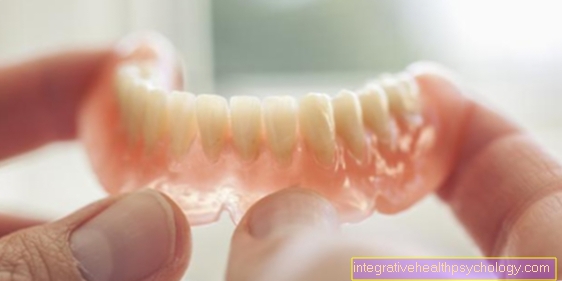



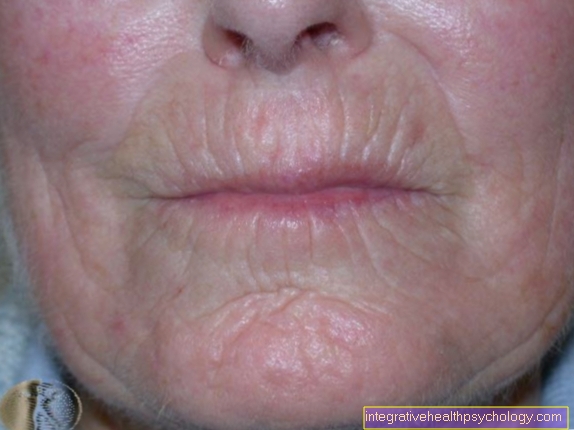

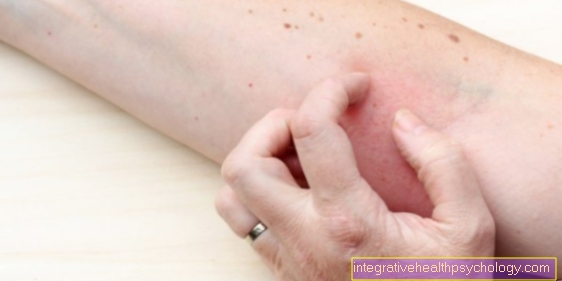


.jpg)
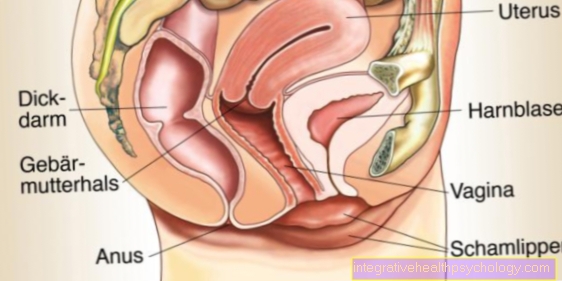


.jpg)
